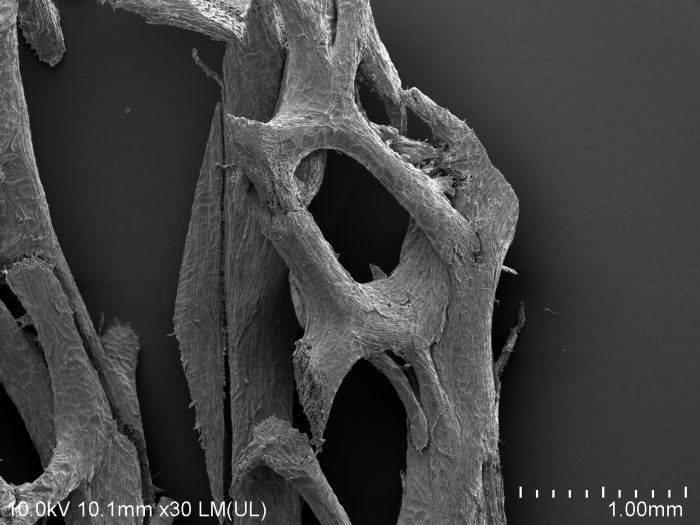
Bio-Sponge is a biopreparation that removes residues of drugs such as paracetamol or ibuprofen in sewage treatment plants. The carrier of the bacteria responsible for this process is a natural plant sponge, which biodegrades over time. The authors of the solution are researchers from the University of Silesia.
The members from the university’s Faculty of Natural Sciences are: Dr. Anna Dzionek, Dr. Agnieszka Nowak, Dr. Danuta Wojcieszyńska, a professor at the University of Silesia, and Dr. Urszula Guzik, a professor at the University of Silesia. The solution, submitted for patent protection, was developed as part of a project financed by the National Centre for Research and Development.
'Bio-Sponge is a biological vaccine capable of degrading paracetamol, selected non-steroidal anti-inflammatory drugs (such as naproxen or ibuprofen) and phenol. Its main task is to support urban and household biological treatment plants in this regard. Our preparation is able to remove pollutants before they reach the environment and start to have a negative impact on living organisms, including humans,’ says Dr. Dzionek.
The preparation is based on a natural plant luffa (loofah) sponge, which is obtained from fruits of vine-growing luffa plants; is widely available in stores and used for washing and body massage.
On this sponge - with dimensions of about 2x1x1 cm - strains of bacteria have been immobilized. They break down paracetamol and non-steroidal anti-inflammatory drugs into carbon dioxide and water. 'The bacterial mixture we have developed has been specially selected for its ability to fully decompose pharmaceuticals. Bacteria use these toxic compounds as a source of energy, a nutrient, and thus eliminate them from the environment,’ Dzionek says.

The bacteria work for about four weeks, then their efficiency decreases. The sponge has a life of about three months, after this time it biodegrades. 'Its natural decomposition is a big advantage of our solution, because there is no need to remove its residues afterwards. Anyway, the bacteria are also +bio+ - they are not produced in a laboratory by genetic modification, but have been isolated from the environment. By introducing them into the environment, we do not disturb the ecological balance, because these bacteria originate from there,’ says Dr. Dzionek.
According to the scientists, the production cost of such a Bio-Sponge is not high - the sponge is an easily available plant material, and the immobilization process itself ('putting' bacteria into the carrier) is not technologically demanding. 'Bio-Sponge is definitely a cheaper solution than, for example, physicochemical methods, which are commonly used today and considered the best in terms of removing pharmaceuticals in wastewater treatment plants. However, they are less safe for the environment because they are characterized by low specificity and can cause uncontrolled reactions in the environment', says the university’s Dr. Urszula Guzik.
Bio-sponge is intended to support activated sludge in biological treatment plants. 'While there is a very complex microbiome in biological wastewater treatment plants, unfortunately it is still not adapted to effectively remove pharmaceuticals. Our preparation can help solve this problem, at least when it comes to non-steroidal anti-inflammatory drugs,’ Guzik adds.
So far, research has been conducted in laboratory conditions. Now the scientists are in talks with interested wastewater treatment plants to test the solution in real conditions.
According to Dr. Guzik, the solution has implementation potential also due to the implemented EU regulations, namely the so-called waste water directive. 'The new regulations require wastewater treatment plants to monitor and remove various pharmaceuticals. Those include diclofenac, which our biopreparation removes. Treatment plants must start to be interested in this topic, because they will soon be required to do so by law,’ she says.
The solution was developed as part of the project 'Preparation stimulating the degradation of non-steroidal anti-inflammatory drugs based on bacterial strains immobilized on a natural carrier', financed by the National Centre for Research and Development. (PAP)
PAP - Science in Poland, Agnieszka Kliks-Pudlik
akp/ bar/ kap/
tr. RL













